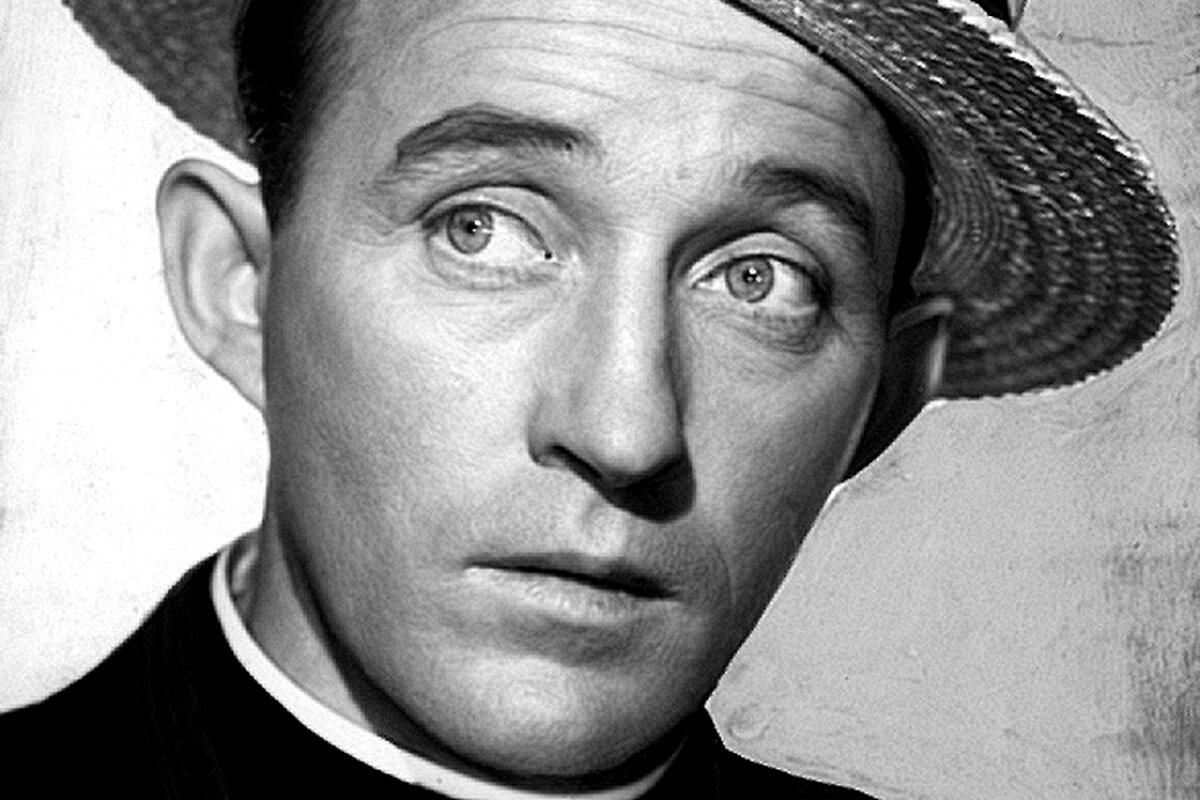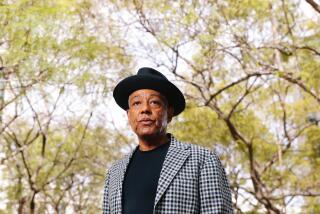From the Archives: New film human and inspiring

- Share via
The fountain of humanness wells up abundantly in “Going My Way.” It is a picture that expresses the phenomenon of good deeds accomplished in the turbulent troubled life of a great city. It is the simple story of two parish priests who battle their way through various setbacks and misfortunes to find that they can with faith always manage to survive these.
No pot of gold at the end of the rainbow rewards them, but just the opportunity to go on fighting and serving and loyally clinging to their ideals for a future that still spells fighting and serving, and perhaps — though they can but dimly hope for that — achieving.
Special Premiere
Bing Crosby and Barry Fitzgerald enact the two churchmen whose experiences the story explores. Leo McCarey, the director, is the one who sponsored the slight plot and circumstance in which they are involved with Frank Butler and Frank Cavett as collaborators on the screenplay.
The premiere of the picture was held last night at Paramount Hollywood Theatre for the benefit of the House of Nazareth Orphanage, netting proceeds of $10,600.
To Fitzgerald will probably go the supreme honors for performance. He deserves them. He was a tremendous hit as the aging Irish pastor, long shepherd of the congregation of a church neighboring the slums.
Crosby enters into a new province. Though music is an essential part of his role, he is no longer the typical crooner that has held enormous popularity for more than a decade. He has a straightforward portrayal to do, which dare not be obtrusive, and yet it consistently carries the tenuous narrative of everyday incidents and events.
He is seen as the priest sent to a parish which is ailing financially, with a view to bringing new stimuli. He must work secretly for its benefit, not letting the aged pastor know that a higher prelate has given him this special mission. Father Fitzgibbon (Fitzgerald) is not advised that the new man is really there to remedy church deficits, but he finally discovers this, and it is his great heartbreak.
Here does “Going My Way” rise to serene summits of heart interest. Like a spoiled child the elderly man starts to run away — out into the rain and the night — Crosby and the police pursuing him frantically.
They give up the quest, and he returns. He has found he has no place to go. He is cold and wet from the dreary weather. He is put to bed by his “assistant,” fed luxuriously, and they have a “wee drap” together.
Closing as it does with a tender Irish lullaby, this is an episode throughout that is bound to tear the hearts out of beholders.
Equal to it in many ways is the scene where Crosby, through the song “Going My Way,” influences the life of the flighty young girl, who had been picked up by the police and who was being guided and protected by the priests. This too is tearful in an entirely different way.
Still another moving moment is the climaxing one which finds the elderly priest united with his mother.
Sparkles With Laughter
Even as it evokes the tear, so does “Going My Way” spread the spell of laughter. It is remarkable in the wholesome whole-heartedness of its humor, most notably perhaps in the early turkey-eating scene.
The picture features Risë Stevens, the opera star, prominently and she is heard in the “Habanera” from “Carmen” as a spectacular musical highlight. She enters rather late in the story, yet hers is a pleasing contribution.
Young Jean Heather is a revelation in her portrayal — a girl of remarkable expressiveness in her acting, which adds so much to the “Going My Way” song scene.
Frank McHugh is an inspiring personality as a priest from a more prosperous parish. Gene Lockhart does an exceptional impersonation of the banker-landlord.
James Brown appears effectively as his son, while Porter Hall, Fortunio Bonanova, Eily Malyon and the boys of the Robert Mitchell Choir are excellent.
More to Read
Only good movies
Get the Indie Focus newsletter, Mark Olsen's weekly guide to the world of cinema.
You may occasionally receive promotional content from the Los Angeles Times.










